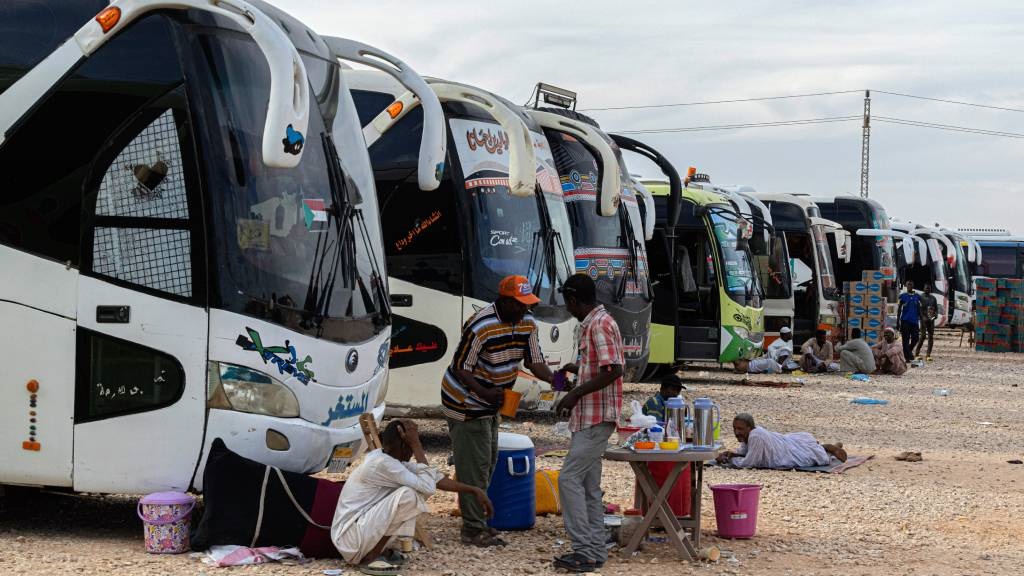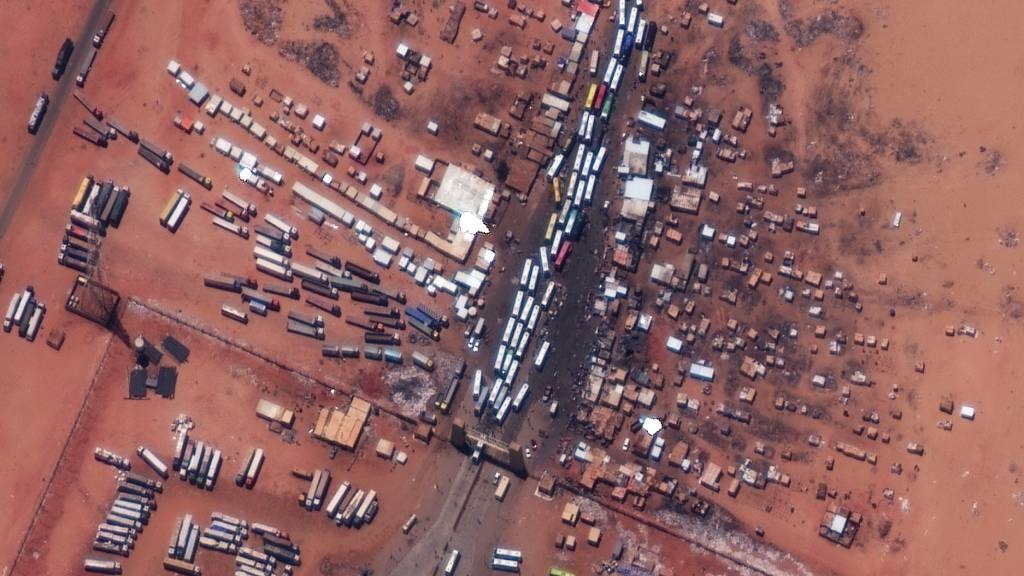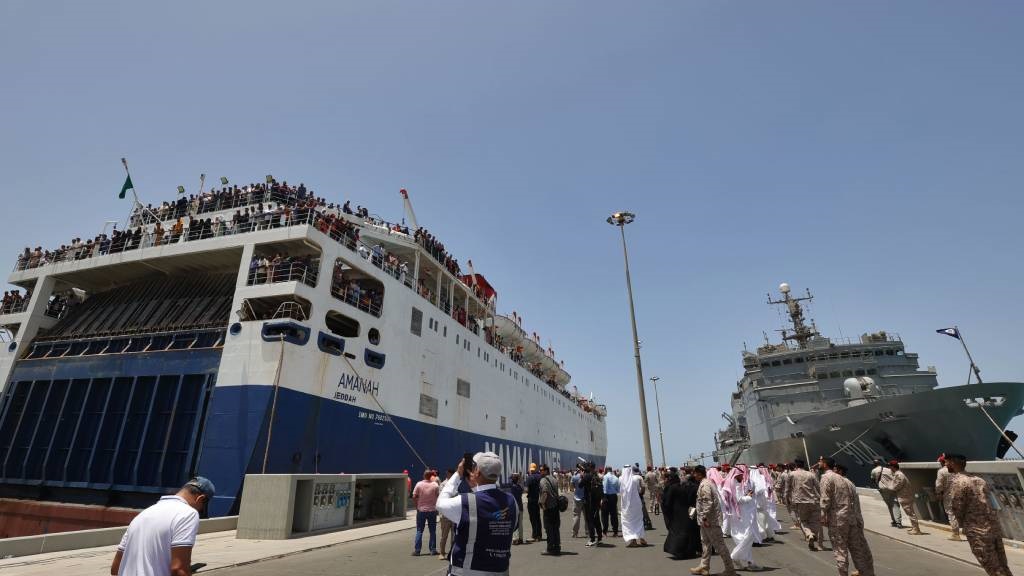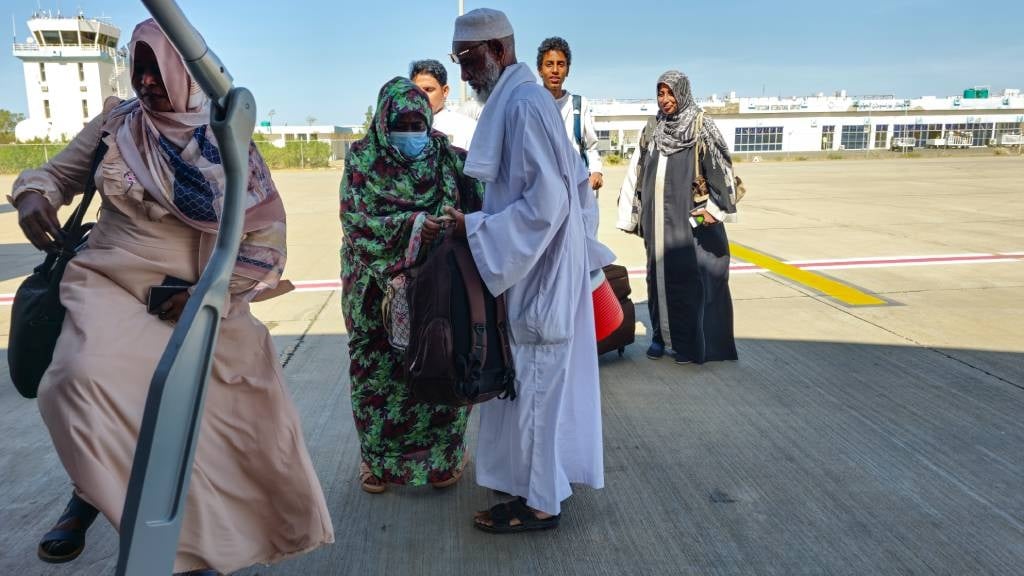- The UNHCR has bemoaned the private sector's reluctance to fund the humanitarian gap created by fighting in Sudan.
- Egypt, Chad, South Sudan, and Ethiopia, within a month, absorbed about 200 000 refugees from Sudan.
- The forthcoming rainy season is expected to cut off roads, rendering relief work difficult in the region.
The United Nations High Commissioner for Refugees (UNHCR) says underwhelming support from the global private sector and already stretched budgets in neighbouring countries' humanitarian needs make it difficult for those fleeing war-torn Sudan to receive support after the exodus.
UNHCR spokesperson Olga Sarrado was speaking at the Palais des Nations in Geneva, Switzerland.
"Support from the private sector has been slow compared to other emergencies, despite the urgency and severity of the crisis for refugees and internally displaced people," she said.
The private sector's involvement is usually two-pronged through financial donations – firstly through a "flash appeal", whereby, within one week of an emergency, food, logistics, and telecommunications are made available to those in need through the humanitarian coordinator.
READ | Russia's Wagner mercenary group is not in Sudan, Prigozhin says
Secondly, the Humanitarian Response Plan (HRP) assesses the severity of the crisis and highlights the most urgent requirements.
It establishes a framework for humanitarian action, determines financing needs, and directs the course of the reaction.
The fighting in Sudan began as countries such as Egypt, Chad, South Sudan, and Ethiopia, where most are fleeing to, were already faced with budgetary constraints for their humanitarian needs.
Most operations in those countries were only funded for up to 15% of their requirements.
Sarrado said:
Fighting in Sudan has not blown out fully countrywide. Internally displaced people (IDPs), including refugees who fled from other countries, are moving to other parts of Sudan.
However, as things stand, relief aid would dry up.
"In Sudan, UNHCR teams continue delivering aid from dwindling stocks, especially in the East and South, which have been less affected by fighting.
"Movements in country are challenging and expensive in light of the security situation and fuel shortages, which increase transport costs. Among the displaced, it is estimated that over 83 000 refugees from other countries have moved from Khartoum and other urban areas into existing refugee camps," she added.
Sarrado told journalists that more support was needed for shelter, water, and medicine.
Since 7 May, the UNHCR has provided about 750 families in Port Sudan with essential aid through the distribution of blankets, plastic sheeting, and other relief supplies.
In North Darfur, the UNHCR provided medical facilities, including a maternity hospital, with generators, tents, and other relief supplies.
In Renk County in South Sudan, "relocation from the border is a priority to prevent more congestion, but transportation is limited", she said.
But the worst fear is that with the onset of the rainy season, the few roads to the border will be cut off, presenting a logistical nightmare.
Renk is a transit area, and people are expected to move further south of South Sudan after receiving basic survival kits and having undergone medical screenings, emergency healthcare, and referrals in mobile clinics.
In Chad, Sarrado said almost 90 000 people have arrived since the fighting erupted on 15 April. She added that "almost 90% of refugees are children and women, including many pregnant women".
"One-fifth of screened children aged between 6 and 59 months, have been found to be acutely malnourished.
"Upon arrival in Chad, many of them expect family members still holed up in Sudan to make the trek to the West.
"Half of the arrivals have family members still in Sudan wishing to join them in Chad. Some men have reportedly stayed back to guard property," she said.
Those taking the Central African Republic (CAR) avenue present a tough job for humanitarian actors.
"In the Central African Republic, lack of fuel and poor road conditions pose challenges to bringing relief items close to the border," she said.
New arrivals were given mosquito nets, kitchen sets, and hygiene kits.
In Ethiopia, a makeshift camp was established in Metema, and it comprises communal emergency shelters.
Egypt, which, according to numerous reports in North Africa, is sympathetic to the Sudan government in the war, is also taking in considerable numbers of refugees. The Egyptian Red Crescent provided them with water, food, wheelchairs, hygiene kits, and sanitary items.
UN agencies say about 790 000 people have been internally displaced so far, with about 200 000 having fled to neighbouring countries.
The News24 Africa Desk is supported by the Hanns Seidel Foundation. The stories produced through the Africa Desk and the opinions and statements that may be contained herein do not reflect those of the Hanns Seidel Foundation.




 Publications
Publications
 Partners
Partners




























